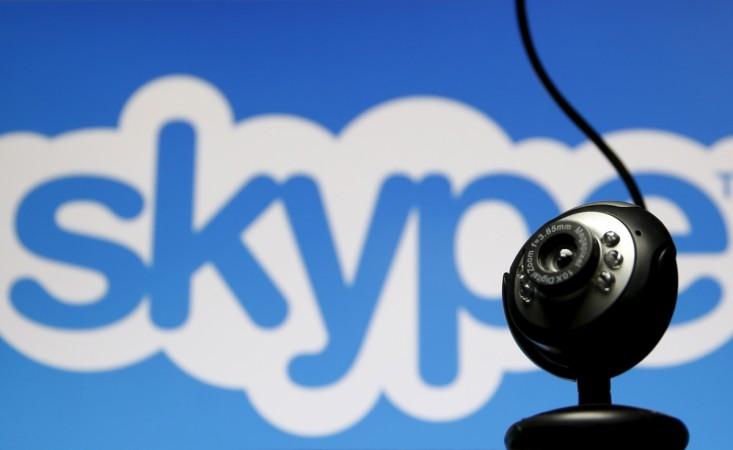
Skype announced Tuesday that it would pull the plug on its smart TV app in June, a move that reflects users' preference for using smartphones and tablets for making video calls. The Microsoft-backed video chat application discreetly confirmed the news on its support page, where it said the smart TV app won't get updates after June, which in turn could make the software unstable.
End of support for Skype's smart TV app means the users won't be able to create new accounts nor reset their passwords for existing ones. Microsoft was convinced to take this decision after it discovered that the users preferred accessing Skype on a smartphone more than on TV even when they are in their living rooms.
"Over the years, users have changed the way they use Skype, with the majority accessing it from a mobile device – including when in the living room," according to the announcement made on the app's support page. "We want to make sure we prioritize delivering the best possible experience to the platforms our users are asking for, which is why we've decided to focus our efforts in other areas while supporting key functionality on Skype for TV for as long as possible."
Microsoft noted that it is the TV manufacturers' discretion to remove the app from some or all of their models. Skype for smart TVs debuted in 2010 and immediately grabbed the attention of users. The service was announced at Consumer Electronic Show (CES) 2010 with Panasonic and LG as its launch partners, but several brands like Sony, Samsung and Sharp joined the bandwagon later.
For existing users of Skype's smart TV app, there is no need to panic as the app will continue to work after June 1. But the lack of necessary updates, software patches would make the experience weary.
According to a Venture Beat report, smartphone sales increased five-fold to 1.5 billion between 2010 and 2015. The users are drawn easily towards smartphones for their everyday tasks, which goes beyond calling and messaging to email, social networking and also gaming. Facebook's recent analysis showed that more than half of its entire user base access the service using a mobile phone.
Microsoft's decision shows that it recognises the change in people's habits and finds it wise to shift to where the crowd's interest is. In the mobile space, Skype already competes against the likes of Apple's Facetime, which works only on iPhones, and almost every popular messaging application like Facebook Messenger.








